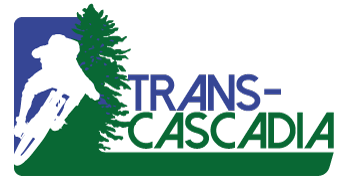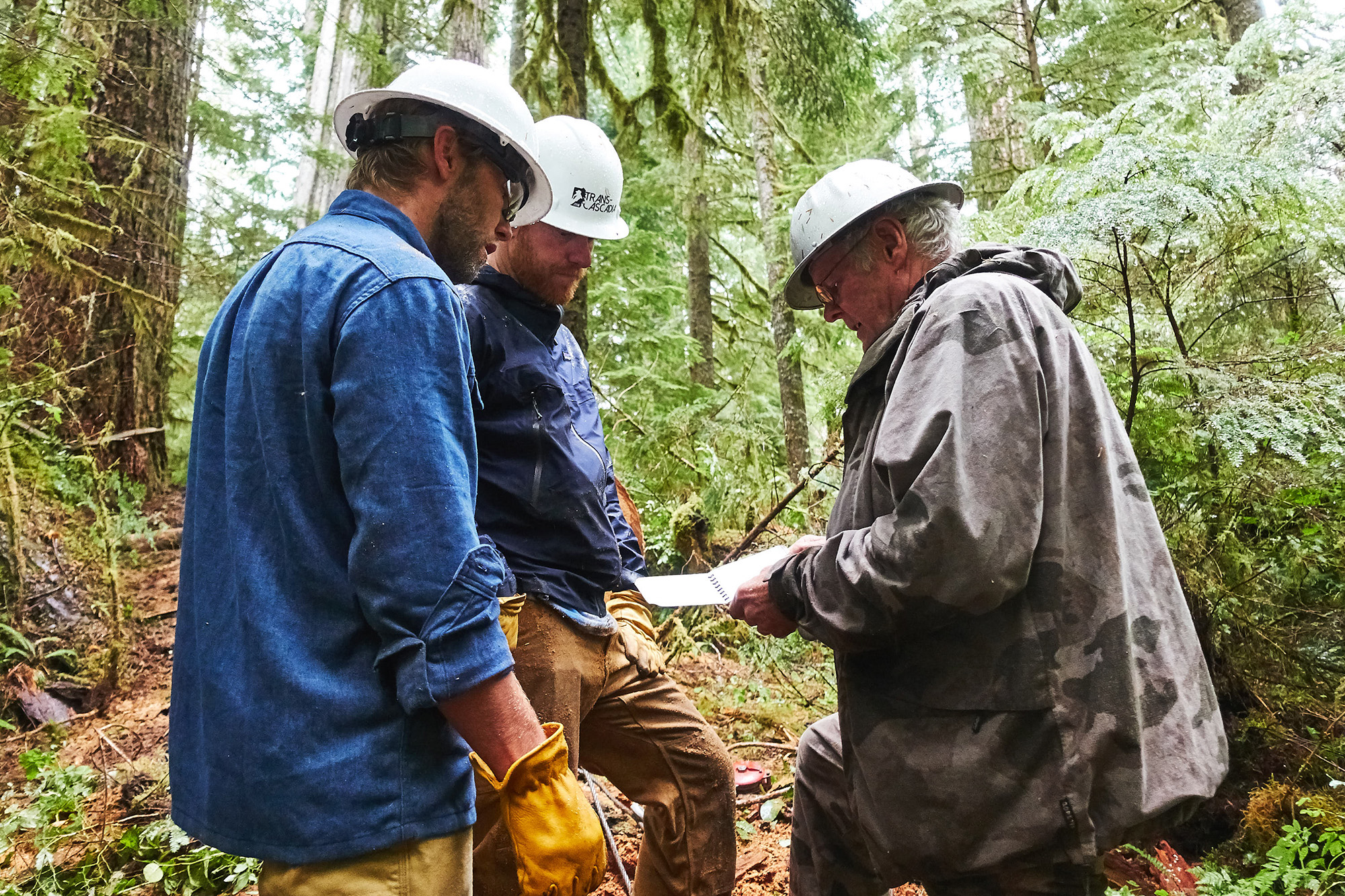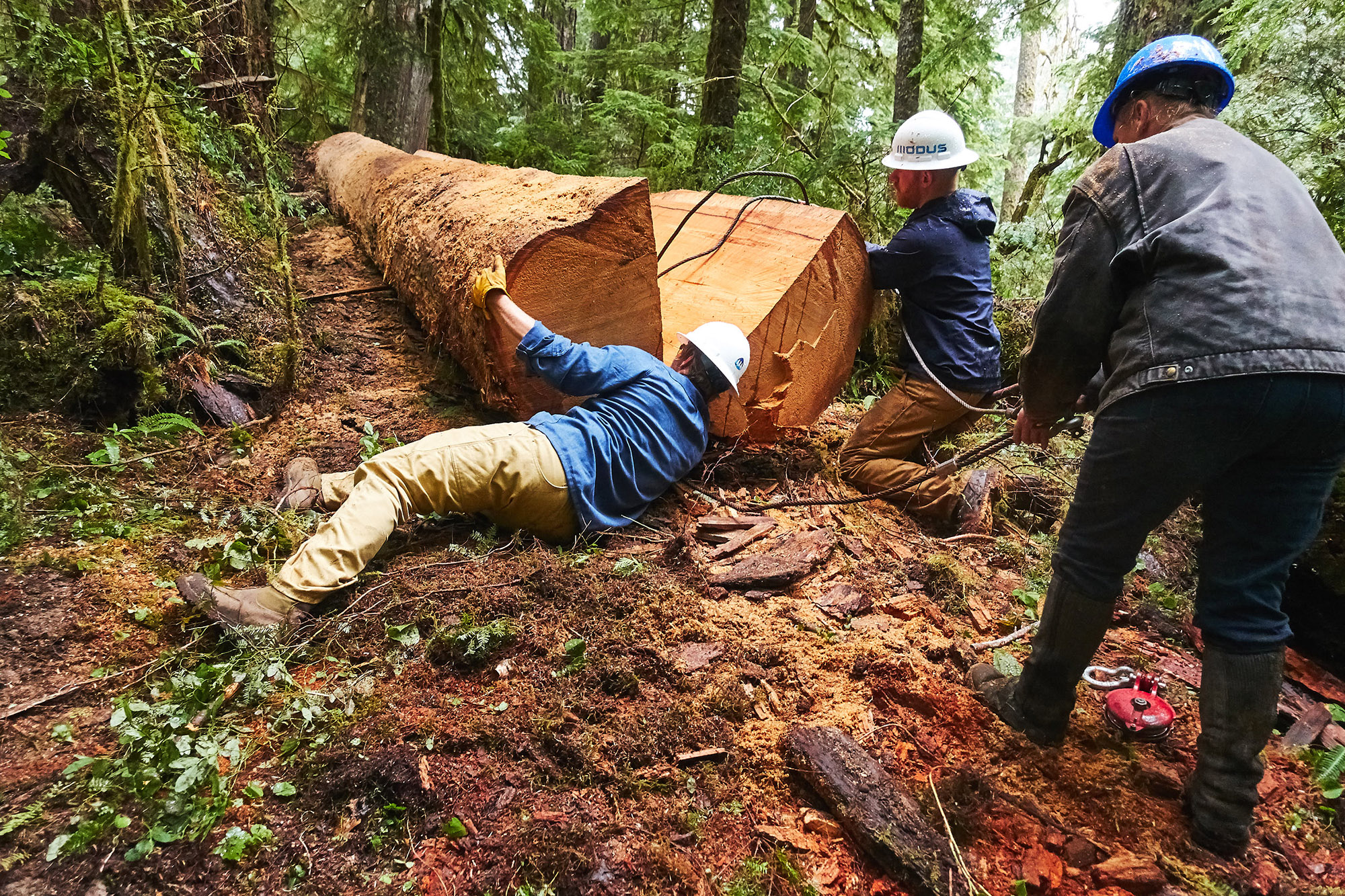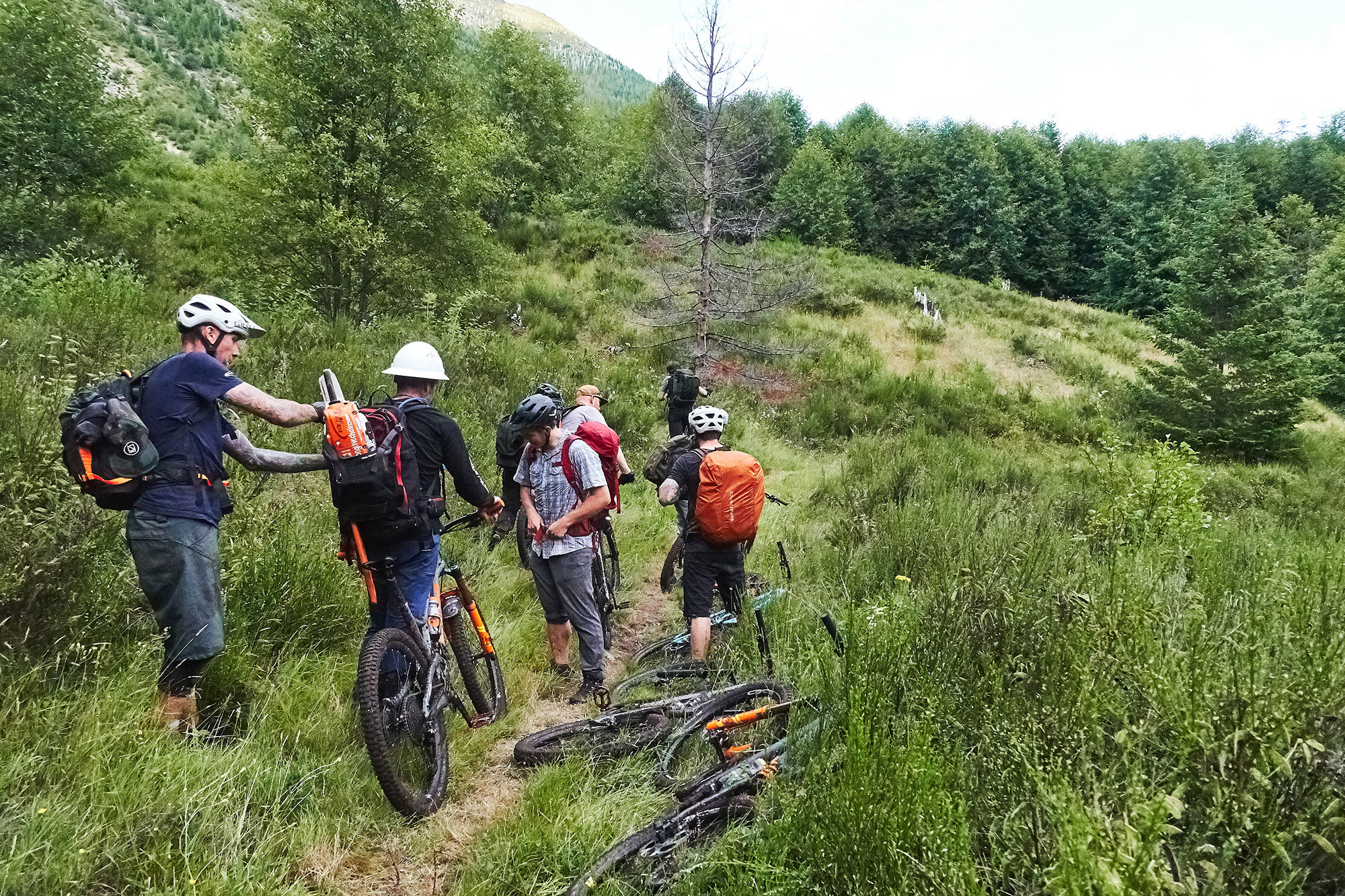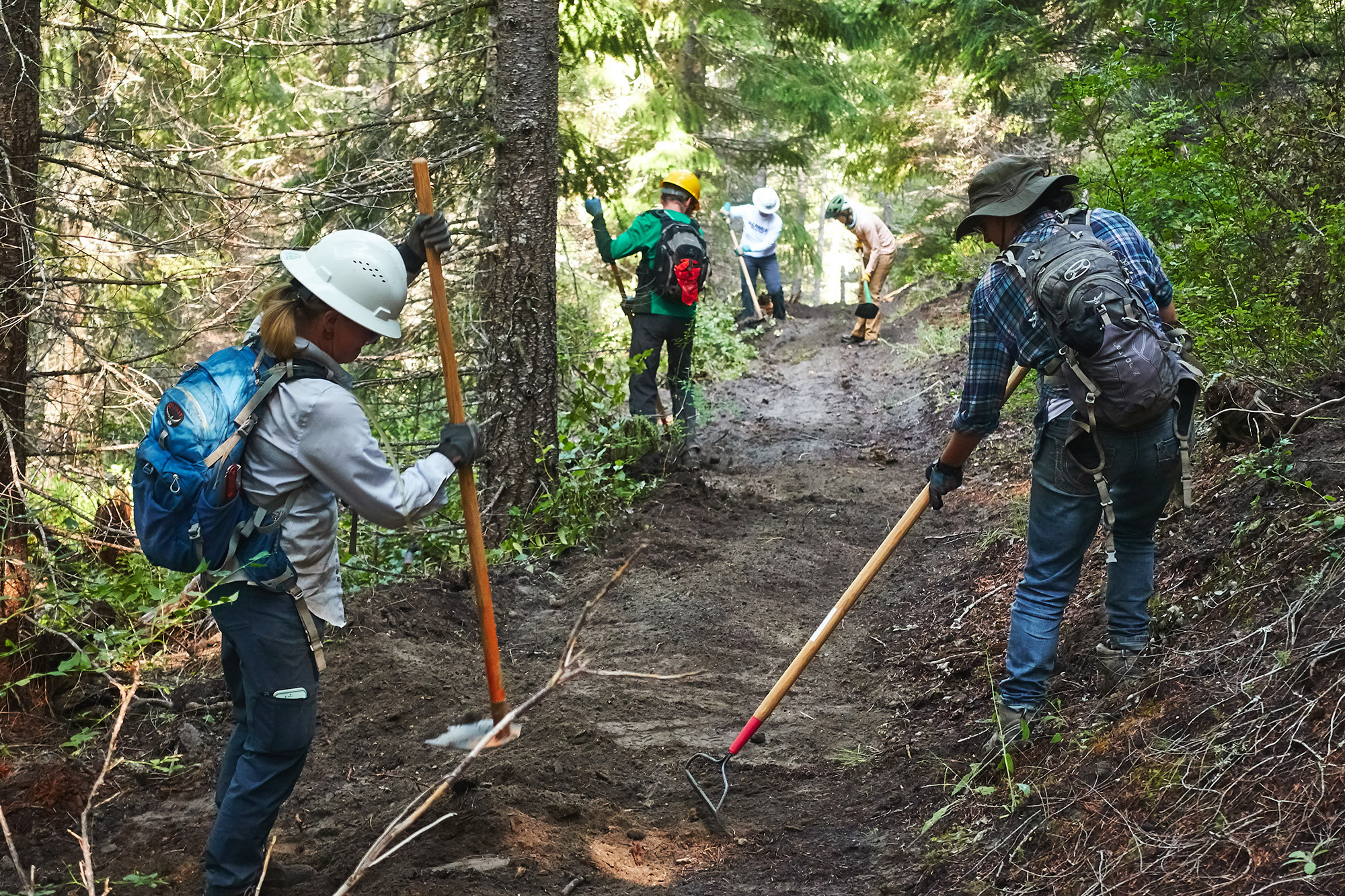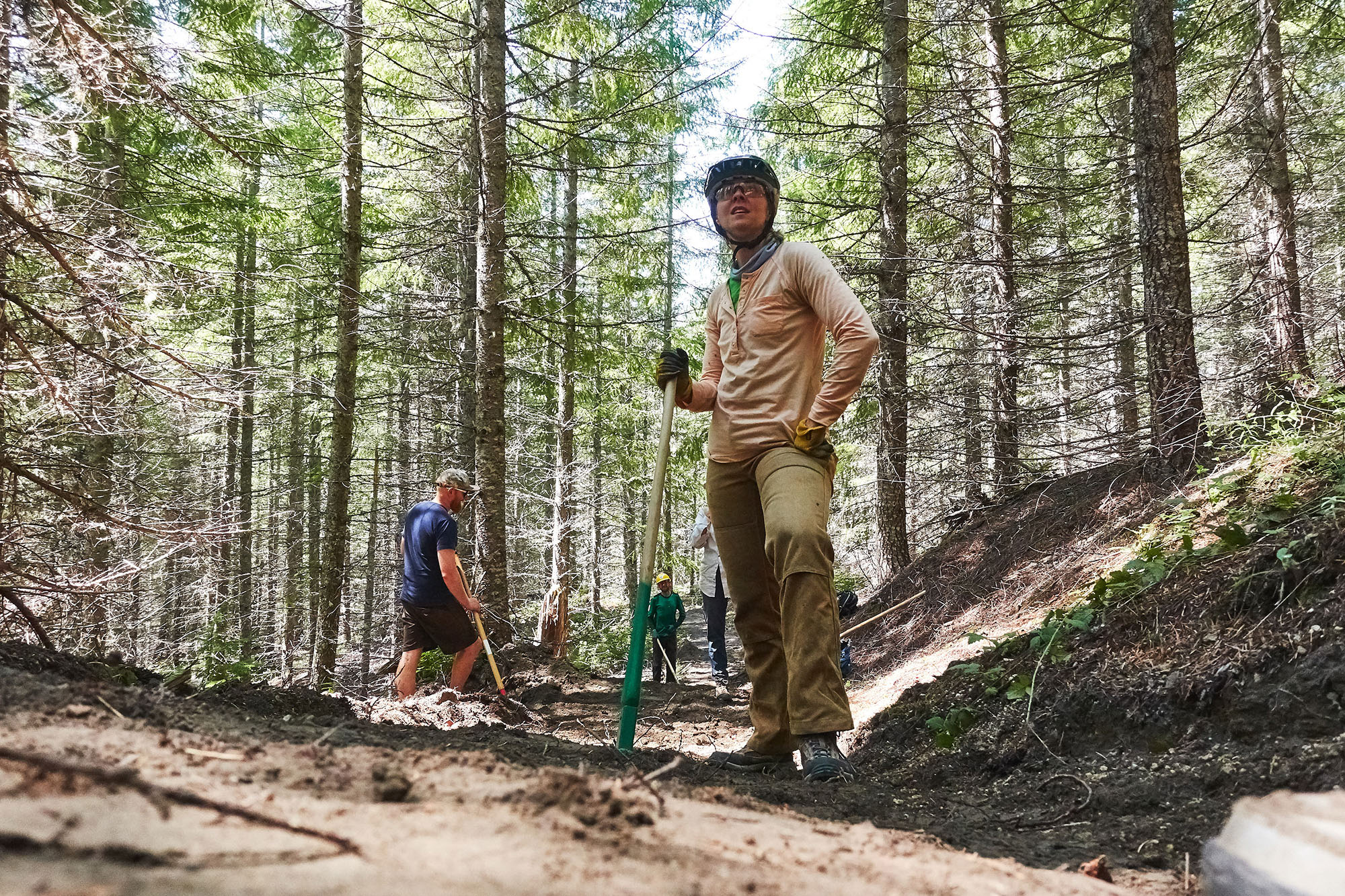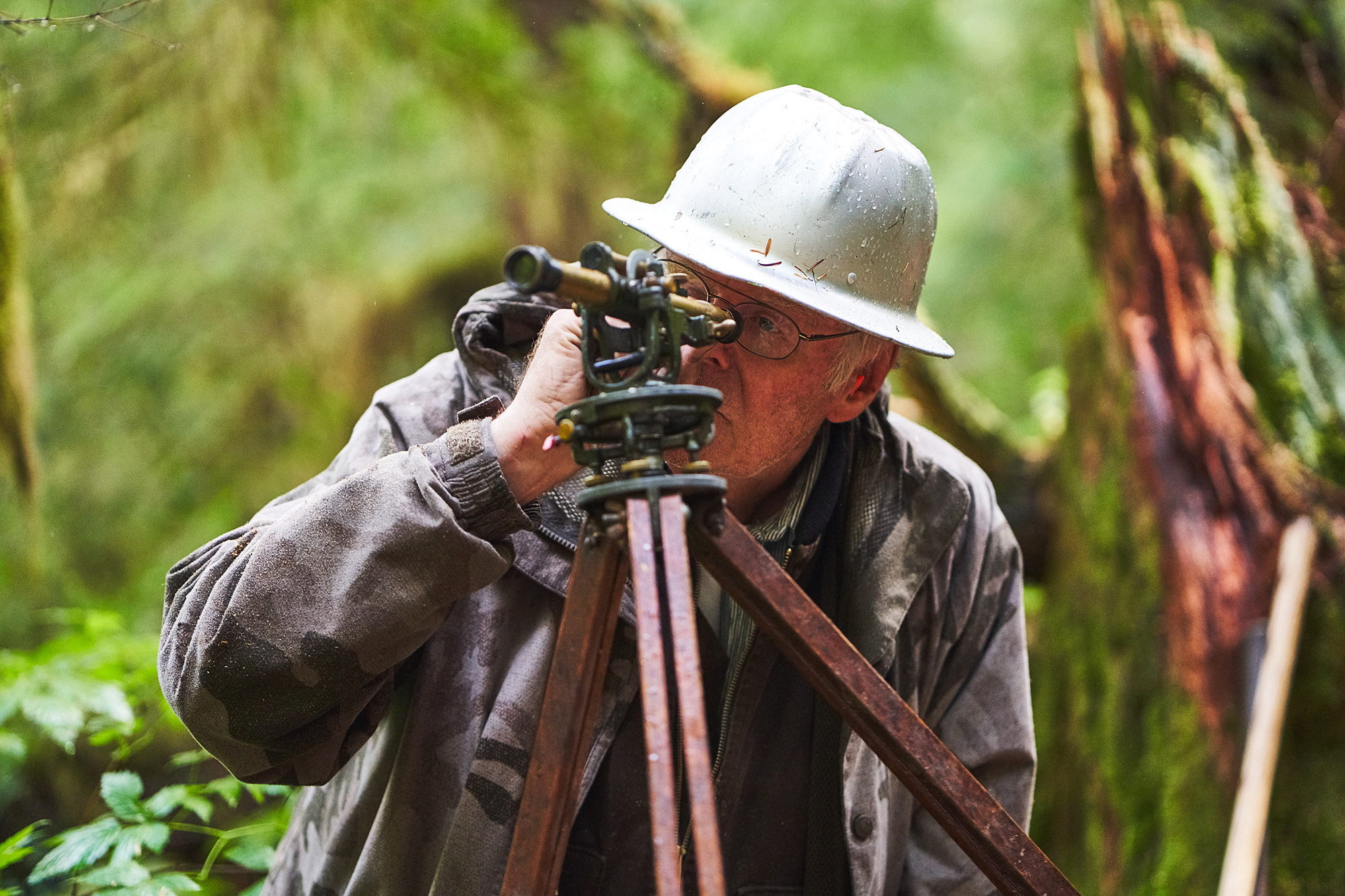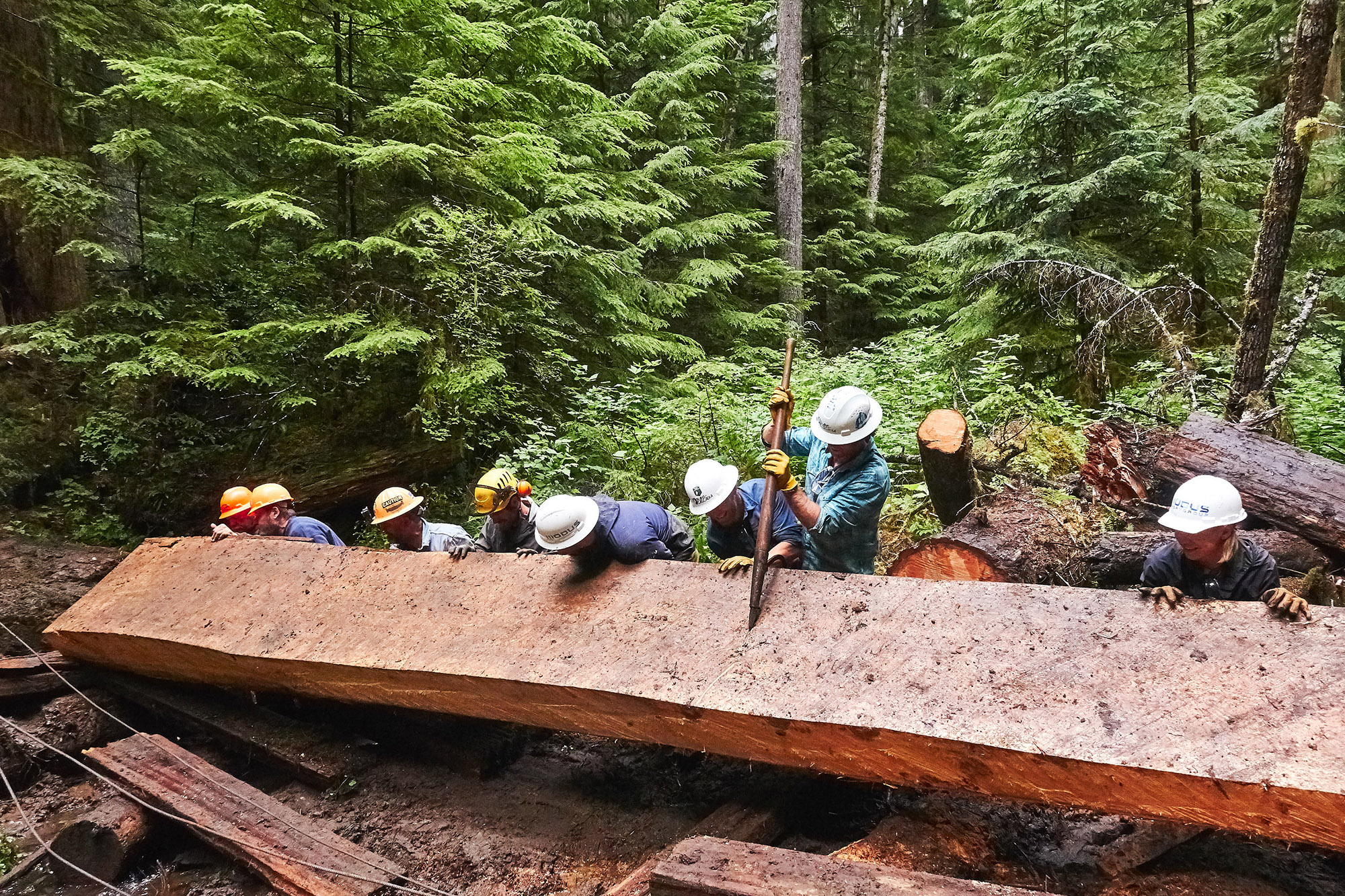Uniting User Groups to Keep Trails Open
“There's a place for everybody. I do believe that.”
- Jason Ridlon, Backcountry Horsemen of Washington
—
This third and final work party of the 2019 Trans-Cascadia season (pre-race) was the first collaborative event with The Backcountry Horsemen of Washington (BCHW) – a group representing stock trail users.
“We got a call from them last year just kind of out of the blue,” says Trans-Cascadia Race Director Nick Gibson. “They were pumped and thankful for the work we had done clearing out the trails.” When the Trans-Cascadia team had first arrived in the area to the Gifford Pinchot National Forest to prep for their 2018 race, nothing was rideable. Due to road closures, it had been four years since the Backcountry Horsemen had been able to access the area. “They invited us to this legacy meeting that has been going on for 30 or 35 years. There were hikers, equestrians, the Washington Trails Association, the Backcountry Horsemen – and we were the first mountain bikers to ever attend.”
After that, the two organizations began speaking regularly and despite what seems like commonplace conflicts between user groups when it comes to managing trail networks on public land, the collaboration between them was a natural win-win situation. “The places that we're cutting out, even in previous years at Old Cascades Crest and Grasshopper, is stock backcountry area,” explains Nick. “We both need log out to make it happen, so we have a lot in common. And what you find with horse folk, hikers, and bikers is that we all have different skill sets that we're really good at, if you take that collective group and their skill sets and put them together, you get a bunch of good work done that compliments each other.”
“[Working together] is our future,” confirms Jason Ridlon, Backcountry Horsemen Vice President. “I think it's absolutely necessary. Our national trail system is in peril and I believe that the future of stock depends on other groups. And I think that the future for the other groups depends on stock.”
The collaborative project – one of many going on during the work party – that Jason worked on was clearing and putting a puncheon through a boggy trail area. A large tree had fallen on the existing structure and the remaining debris had backed up the creek. Utilizing the experience of some of the professional riggers and loggers from the Backcountry Horsemen and the enthusiasm and numbers of the Trans-Cascadia crew, they were able to replace the damaged crossing with two 24-foot stringers – about 12,000 pounds apiece – cut in place from a fallen Douglas fir roughly 44 inches in diameter.
This time spent one-on-one and working as a team seemed to have the most lasting impact when the weekend ended. “We all live the same basic trials and tribulations and to actually work with the people and get to know them as people, not as a horseman, not as a biker, not as a hiker - it allows you to put aside the things that may bother you or that you may still not agree with,” says Tyler Forman, the President of the Cowlitz-Naches Chapter of the Evergreen Mountain Bike Alliance. “We'll never agree with somebody 100% but if we can at least relate to where they're coming from, you can go work together and have a good time and agree to disagree and be happy about it instead of bitter about it.”
While mountain bikers are the “new kids at the table,” as Nick puts it, the important part is recognizing the value that each group brings. “We are really strong right now and we're really capable, if we use it in a positive way where it's collaborative, it means there are a lot of good resources being thrown at a multi-use trail network that will ultimately make everybody happy. [Mountain bikers] came in in the eighties and nineties and now we're more prevalent, but we were just maintaining what was built out here. We want to talk about the legacy of hiking, horses – they've built and maintained these trails for centuries prior to us. I think we have to be really respectful of that.”
On the Saturday night of the work party, after three days of working together deep in the backcountry, the two organizations shared a feast. Following the meal – which included a roasted pig and award-winning Dutch oven apple turnovers – leaders from both groups stood atop a picnic table to address the crowd. One after the next, they checked off a long and challenging list of work that had been completed as the volunteers cheered. The celebration proved that while collaborations like the one between Trans-Cascadia and the Backcountry Horsemen may not be all that common – the positive results are undeniable.
Photos by Dylan Van Weelden and Chris Hornbecker.
